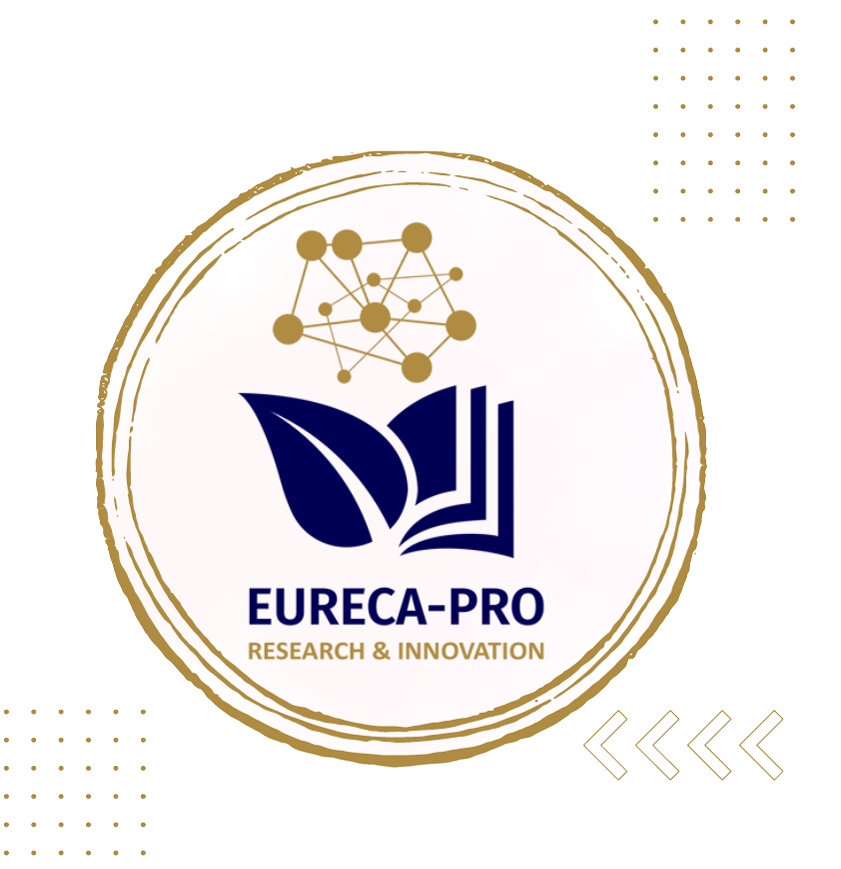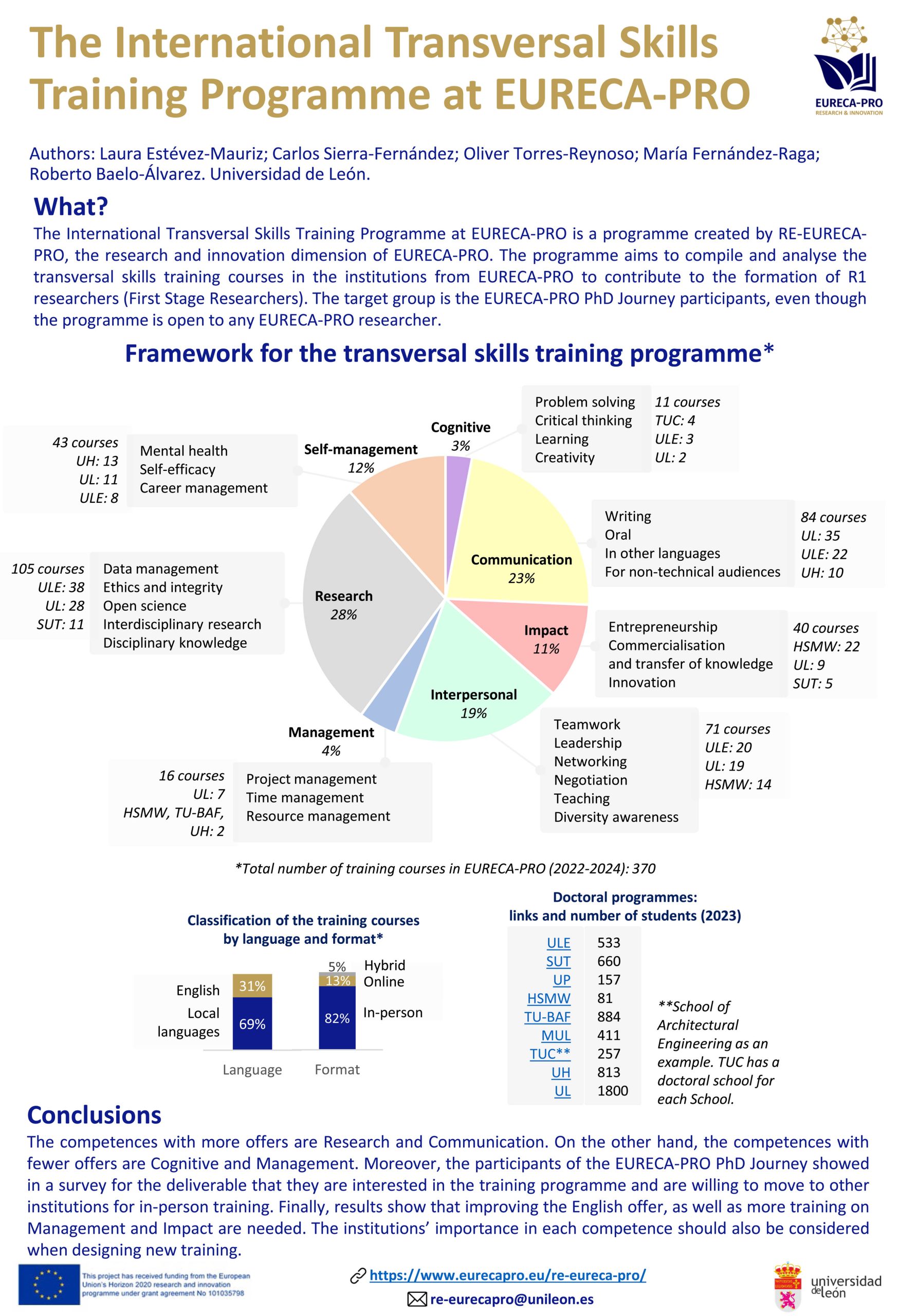Validation of skills training format
Action Area 2: New Human Capacity
Deliverable 5.5 | WORK PACKAGE 5 – Life-Long Career and Human Resources Development
Universidad de León
Type: Public deliverable
This deliverable aims to create an international transversal skills training program at EURECA-PRO, arming early-stage researchers with the essential resources to amplify their skills. The document starts with an exhaustive review of the literature on transversal skills training that R1 researchers need for their career development. We establish a framework based on seven competence groups: Management, Communication, Interpersonal, Impact, Self-management, Cognitive, and Research. The study is followed by the compilation and analysis of the training courses offered to researchers of the alliance in the scholar years 2022-2023 and 2023-2024 and is validated by a survey targeting the participants of the PhD journey. The results show that researchers would move to other institutions for transversal skills formation purposes and that more English language courses and training in Management and Impact competences are needed.
The culmination of this effort is the presentation of two comprehensive lists of training courses: Annex I, which specifies courses available in English, and Annex II, which catalogues courses in local languages. These lists, alongside the transversal skills rubrics and definitions housed in Annex III, are made available to the alliance’s researchers through the EURECA-PRO PhD journey and on the EURECA-PRO website.
Transversal skills have gained growing attention (Gibb, 2014), especially in Early Career Researchers (ECRs) (Sun et al., 2023). These skills complement researchers’ technical skills (Meissner & Shmatko, 2019; Weber et al., 2018), increasing their career development prospects in a competitive context, their employability, and the possibilities to engage different career paths in the academic, public, and private sectors (Weber et al., 2018).
However, reality shows that there is a need for transversal skill development in doctoral education (Pham, 2023; Young et al., 2020). R1 researchers demand more support to develop their transversal skills (Young et al., 2020). Many higher education institutions (HEIs) in Europe are aware of this situation and are creating transversal skills programmes for R1 researchers to increase the acquisition of relevant skills for career development (Deem, 2022).
Joining the previous demands, the main objective of Deliverable D5.5 is to create an international transversal skills training programme to be integrated into the PhD Journey of EURECA-PRO in which R1 researchers, in the first instance, and any researcher of the alliance, in the second instance, can take advantage of learning new skills.
Therefore, three specific objectives must be achieved:
- Creation of a framework to be applied to the transversal skills training programme by a review of the literature to the creation of a framework that covers the transversal skills needed by R1 researchers.
- Collection of transversal skills training courses on EURECA-PRO by gathering information on all training courses for researchers to detect best practices on transversal skills training.
- Creation of the international transversal skills training programme to publicly share and deliver to the PhD Journey of EURECA-PRO.
The International Transversal Skills Training Programme at EURECA-PRO
Authors: Laura Estévez-Mauriz; Carlos Sierra-Fernández; Oliver Torres-Reynoso; María Fernández-Raga; Roberto Baelo-Álvarez | Universidad de León.
What?
The International Transversal Skills Training Programme at EURECA-PRO is a programme created by RE-EURECA-PRO, the research and innovation dimension of EURECA-PRO. The programme aims to compile and analyse the transversal skills training courses in the institutions from EURECA-PRO to contribute to the formation of R1 researchers (First Stage Researchers). The target group is the EURECA-PRO PhD Journey participants, even though the programme is open to any EURECA-PRO researcher.




